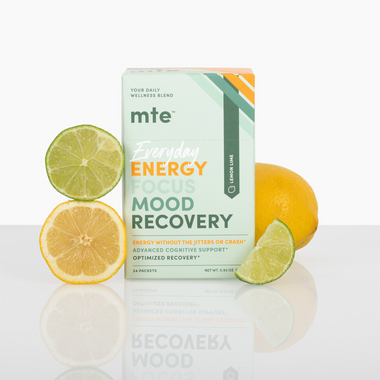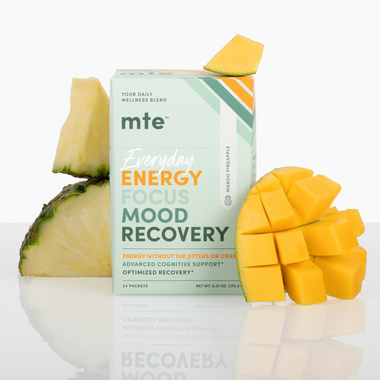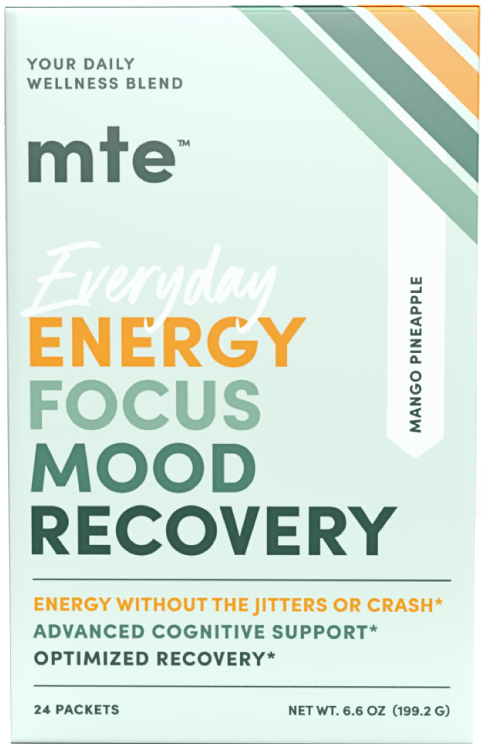
10 Tips to Help You Quit Caffeine Without Losing Your Mind
Quitting or cutting down on caffeine can be a daunting and tenuous process. Not only are caffeinated drinks convenient, but they’re effective at what they do. How could you not feel more wake after 250mg of caffeine in a 12oz drink? But caffeine – as you know if you’re trying to quit – has its bad side.
The bad side of caffeine in the moment are things like nervousness, increased heart rate and jitters. Often easily justified by the in-the-moment benefits. But the bad side of caffeine in the long-term becomes especially evident when you quit. It can be overwhelming, but if you understand what you’re going through, you can take steps to manage detoxing from caffeine without losing your will to live.
Why You Feel Like Crap When You Cut Out Caffeine
Caffeine is so present all the time and everywhere that people forget – it’s a drug. Because it indirectly stimulates the brain’s reward system, it’s classified as an addictive substance. And because your body becomes more resistant to it over time, it generates tolerance and dependence. While it’s no street drug, the withdrawal coming off of a caffeine dependence looks pretty similar:
- Headache
- Fatigue
- Irritability
- Difficulty concentrating
- Anxiety
- Depression
- Muscle aches/tremors
- Nausea/vomiting
These symptoms are a response to your brain feeling like it’s being starved of its excitatory and feel-good chemicals. It’s so used to getting that hit of caffeine that it’s learned not to deal with that neurochemical activity on its own, so there’s a severe rebound that can last up to a couple weeks while your brain tries to right itself.
In the meantime, you’ve got to find ways to minimize the severity of those rebound symptoms.
How to Manage Symptoms of Caffeine Withdrawal
Here are 10 things you can do to make quitting caffeine more bearable so you can kick it for good:
1. Start the quitting process at a low-stress time.
Maybe don’t try to quit caffeine right before you move into a new house or start a new job. The ideal situation would be to start quitting when you’re on vacation, but any 2-week period you can find where life is as low-key as it can get will help it seem like a smaller obstacle. And also you don’t have to be around people as much while you’re perpetually irritable.
2. Reduce your caffeine intake in stages.
No reasons to go cold turkey – that can result in pretty severe symptoms, especially if you’re a 3-coffees-a-day or 2-Rockstar®-a-day consumer. Set goals for yourself to reduce your caffeine intake progressively, week-by-week. It’s possible you may avoid the negative experiences altogether if you’re patient enough about it!
3. Drink a lot of water.
Dehydration will exacerbate all the bad things about coming off an addictive substance – perhaps most of all the headaches and other physical pains, including digestion. Proper hydration is crucial to every system in your body. Focusing on water consumption not only keeps you well-hydrated, but it gives you something else to focus on besides how much you miss caffeine – especially if you do something like mark a water bottle and follow hourly goals.
4. Prioritize sleep.
Have you ever noticed that when you get hurt really bad or are very ill you sleep for inordinate amount of time? It’s because sleep is when your body has the opportunity to do some real work on vital systems while everything is sort of shut down. You’ll be tired anyway; give yourself some grace and lean into it – keep a healthy, consistent sleep schedule.
5. Keep a nutrient-rich diet.
Your body is trying to repair a bunch of stuff, and that happens systemically over time. Beefing up your diet (not with beef, though) with nutrient-rich superfoods, grains, greens, healthy fats, and lean meats will provide your body with the resources it needs to repair the damage of quitting caffeine. It can help streamline the quitting process.
6. Exercise even though you feel like death.
Spend energy you don’t have to create more? It’s a real thing. Exercise is proven to fight fatigue, support sleep, improve heart health, and fight depression. It stimulates your brain’s reward system, too. Even if you’re feeling awful, try to get active anyway. Even something like a 30 minute walk can get things moving, and might help with energy, state of mind, soreness, and headaches.
7. Practice relaxation techniques.
Just like caffeine tricked your brain into a dysfunctional pattern, practicing stress-reduction techniques can trick your brain into functional patterns. Daily habits like progressive relaxation, mindfulness, meditation, and biofeedback will help curb mental stress and release physical tension.
8. Find a caffeine-free substitute.
There are plenty of ways to get energy without caffeine – and a healthy replacement for energy drinks and coffee can go a long way in helping you quit caffeine altogether. Like coffee? Switch to decaf. Enjoy bubbly drinks? Try flavored seltzer waters. Looking for something that supports energy and wellness to support against negative sensations at the same time? A natural energy drink replacement like MTE’s greens powder can do wonders.
9. Start a new (healthy) ritual as a replacement.
Many of us start our morning with a ritual that revolves around caffeine – especially coffee and tea drinkers. Part of any addiction is the context – the habit itself. Find a way to replace that habit. Whether it’s simply swapping coffee out for your caffeine-free substitute, or starting a whole new ritual like 10 minutes of yoga, it can help fill the habit facet of quitting a habituating substance like caffeine.
10. A little ibuprofen never hurt anyone.
Even the best of efforts might not totally handle headaches and sore muscles. Ibuprofen is cheap and over-the-counter; it’s non-steroidal; and it acts as an anti-inflammatory with analgesic properties. Not the worst option to get yourself through a particularly rough afternoon.
MTE: The Natural Solution for Quitting Caffeine without Quitting Energy-Boosters
There’s nothing wrong with getting a little help with your energy levels, and you can keep a daily ritual without relying on something that’s literally a drug to complete it. MTE is a sugar-free and caffeine-free alternative to energy drinks, coffee and tea that boosts energy better. Nootropics like theacrine provide energy without the spike and the crash, and adaptogens like ashwagandha help the body resist stress, freeing up mental and physical energy naturally. Because what’s the point of feeling more awake if you also feel awful?
Oh, and no feeling awful if you decide to stop drinking it, either. Because it’s not drugs.
MTE is a feel-good green drink powder that can be used as a replacement for your caffeine habit, but it can also help you with the weaning-off process. Because it contains no caffeine, it doesn’t hurt your detox efforts. In fact, the combination of adaptogens and nootropics can help against migraines and other caffeine withdrawal side effects. It's a game-changer in the energy drink market, no question.
Plus, the advanced blend of 13 adaptogens, nootropics and superfoods will also support other facets of your life you need to make it through that initial quitting period, like sleep quality, mood, focus, immunity, inflammation, and more. It’s biohacking at its finest, and the perfect way to substitute energy drinks and improve your wellbeing at the same time.
Check out the newest thing in energy drinks: More Than Energy.






